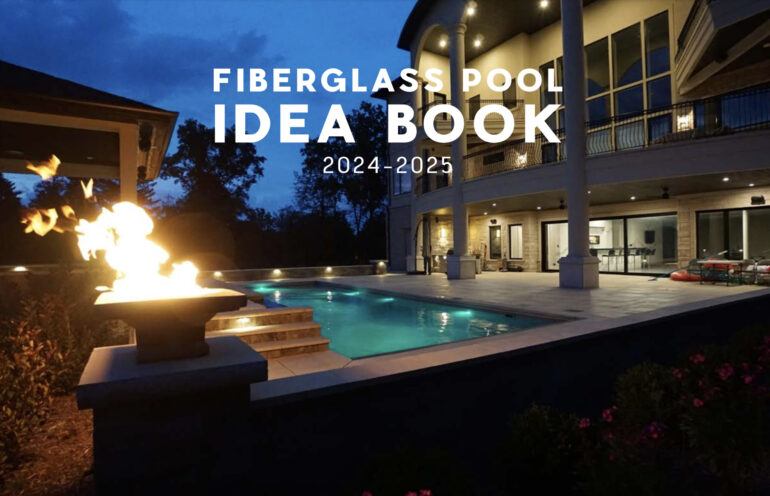No Concrete Solution
Harried pool builders search for workarounds for long cure times

It’s pretty much a given these days that pool builders are running way behind schedule. The surge in demand for new and renovated pools during quarantining has been historic, and pool builders, subcontractors and manufacturers of materials and equipment are struggling to keep up. Clients will be waiting months, or even a year or more, before they are swimming in their pools.
Is there anything builders can do to speed up the construction process? To work more efficiently? To streamline operations and complete projects quicker without compromising quality?
Paolo Benedetti, CEO of Aquatic Technology Pool & Spa in Morgan Hill, California, says the short answer is no. “Builders who try that will always be compromising something, quality or supervision,” he says. “Something is going to give if you try to speed things up.”
Benedetti designs high-end pools for clients all over the world but has no office staff or sales department. Except for the occasional stainless-steel vessel, his pools are built of concrete, so saving time using prefabricated shells is not an option.
“People are just going to have to get used to it,” Benedetti says. “All my clients want things done yesterday, but I’m telling them they’re going to have to wait in line.”

No time to cut corners
Nathan Caldwell, construction manager at Gohlke Pools in Denton, Texas, says he has struggled with how to increase the number of jobs without losing the company’s identity and compromising quality. “The question has been at the top of everyone’s mind and at the forefront of countless meetings,” Caldwell says.
One of Gohlke Pools’ strategies to meet increased demand has been adding and developing additional crews. This has entailed increasing the amount of supervision to further the skills of the tradesmen employed. The company is also looking into bringing selected subcontractors in-house and putting them on the payroll, mitigating the risk of scheduling delays. Gohlke Pools is not offering clients prefabricated shells but is increasing the company’s capacity for concrete pool builds.
“Cutting corners may shorten the amount of time to complete a project, but at what cost?” Caldwell asks. “We are as transparent as possible on the length of time each project will take and prefer to deliver on the promise of quality.”
Streamlining the sales process
There may not be any acceptable short cuts in the construction process, but some pool builders may be able to increase overall efficiency. Like many pool builders, Rick Woemmel, president of Bi-State Pool & Spa in O’Fallon, Missouri, was inundated with queries about pool builds last year when the country started shutting down. Practically overnight, his company went from five phone calls a day to over 100.
To deal with the torrent of inquiries, Woemmel put together a 42-minute video and posted it to the company’s website as a way of pre-qualifying customers. Instead of a PowerPoint presentation, the video covers every aspect of the pool process: types of pools, timelines for completion, costs, equipment, color choices, safety covers, decking and fencing, and more. Those who opt to continue the process and get an estimate for a pool are asked to take photographs of their backyards and send them to Bi-State.
None of these new sales and presentation tools affect the timeline for the construction of the pool itself but greatly streamline the pre-construction processes.
Fiberglass for quicker installation
Although it’s not an option all builders or homeowners embrace, pools using prefabricated shells take far less time to build than concrete pools. Woemmel, whose company builds concrete, vinyl and fiberglass, says a concrete pool takes a minimum of two months to finish, since the concrete needs to cure for 28 days. In contrast, he can build a fiberglass pool from start to finish in a week and has seen greater interest in fiberglass pools of late. To meet increased demand, Bi-State added a crew last year that builds fiberglass pools only.

“My guess is that fiberglass is probably going to grow the most through this pandemic simply because the customers I’m running into are customers who want it now,” Woemmel says. “The only pool I can get into the ground now is a fiberglass pool.”
Thursday Pools, a fiberglass pool manufacturer in Indiana, has a variety of pool designs, including the company’s patented beach entry pool and patent-pending sunken living area design. The company has seen an exponential demand for its products, says director Annie Brock. “Both builders and service professionals who want to get into installing pools are looking at fiberglass to help ensure they maximize the number of pools they can install in a given season,” she says.
Seeking to help installers save time and back-breaking backfill work, Thursday Pools also offers a patented Backfill Eliminator, a specially fabricated structure integrated into the bottom of the pool that allows for sturdy and level installation, says Brock.
Berggren Pool and Spa Services in Wenatchee, Washington, previously offered only pool and spa service. “We did our homework and decided we should start building fiberglass pools,” says owner Michael Berggren, whose company recently expanded to include Berggren’s Backyard Oasis Pool Construction. He chose Thursday Pools specifically because of the Backfill Eliminator. “It pretty much guarantees a perfect installation in far less time,” he says.


Brock mentions that, not only is the installation of a fiberglass pool faster but requires a smaller crew than a vinyl-liner or gunite pool. “Pool installers have found labor to be scarce over the last few years and had already been choosing to add fiberglass pools to their offerings because of this labor scarcity,” she says. “Fiberglass pools require fewer people to install them and you don’t need to have the skilled labor required for other pool types — like a skilled person to form a vermiculate bottom for a vinyl-liner pool or someone with the finishing skills required for gunite pools.”
Another benefit of fiberglass pools, Brock says, is that they can be installed in virtually any temperature. “As long as you can dig the hole, you can install a fiberglass pool,” she says.
Leisure Pools, a fiberglass pool manufacturer out of Tennessee, has dealers who easily install two to three pools per week, says David Pain president and CEO. Leisure Pools offers 27 designs in 67 models with seven gelcoat color options. Pain says the company has attempted to maintain a small inventory of pools, which afford pool builders the opportunity to purchase a pool today and have it delivered tomorrow. Standard production time is three to four weeks, but the manufacturer has seen slight delays, which it is continuing to work to overcome.
“Despite this, what we find as the greatest challenge is not our ability to deliver product,” Pain says, “but with the dealers’ ability to schedule an installation due to the demand already built into their schedules. We are firmly committed to looking at all options, whether it be adding more distribution centers, purchasing additional manufacturing facilities or adding more production lines. However, I must stress that the real power lies with the individual dealer. We’re ready to help, but the dealer needs to be committed and motivated.”

Efficient prefab concrete shells
Another time-saving option for pool builders is prefabricated concrete. Soake Pools, based in Pembroke, New Hampshire, manufactures 7- by 13-foot precast concrete plunge pools. Typically, lead times from date of order to delivery to pool companies is eight to 12 weeks, though the pandemic has caused that to be a bit longer, says Karen Larson, president of Soake Pools, emphasizing lead times should be back to normal this season.
The tiling, plumbing and other finish work is done during the manufacturing process rather than onsite, Larson says. There is much less wear and tear on the customer’s yard and weather is not a factor, she adds, as the vessels are manufactured in the company’s facility.
Larson says the majority of the company’s pools are in New England and the East Coast, but the shells — which weigh between 18,000 and 26,000 pounds — are shipped across the country. Once the shells are on site, the installation process takes a day or two. Soake Pools works with authorized dealers around the country for the installation, and on-site prep and finish work.
“We’re a niche market,” she says. “For the right fit, people don’t mind shipping them across the country.”
S-Pool, based in Israel, and Plungie, based in Australia, are two manufacturers of prefabricated concrete plunge pools entering the U.S. market. Both companies report an uptick in interest due to the general surge in demand for pools and the quick installation time of prefabricated concrete pools.
According to Eran Eizik, global strategy and commercial director, S-Pools are delivered to pool companies anywhere between a few days from order (if it’s already in inventory) to up to eight weeks for custom builds. An S-Pool takes just one day to install because it is completed in the factory, including the preinstallation of plumbing in the walls of the pool. S-Pool offers pools in a variety of sizes, the largest measuring 36 feet long and 12 feet wide.

“Customers can purchase a pool from inventory and get a finished concrete pool in days instead of months,” he says, adding that all quality control and lead detection is done in the production line. Once the municipality approves size and shape, it is an off-the-shelf product and no more approvals are needed.
Plungie has been making prefabricated plunge pools in Australia since 2018 and poured its first pool in the United States last January. The company launched with a 20- by 10-foot pool, 5 feet deep, says Donovan Shanahan, who heads the company’s U.S. sales efforts. He says Plungie expects to add an 8- by 16-foot pool to its lineup this spring and possibly a round pool in 2022.
With the growing demand for pools, Shanahan predicts prefabricated plunge pools will be a great niche for builders over the next two to three years.
“The pool arrives on our delivery truck, is craned into place and the ‘build’ is done,” he says. “With Plungie, customers can be swim-ready in days, not months.”
Prefabricated shells — when appropriate — and innovative sales and pre-construction processes may offer some builders opportunities to boost efficiency of their operations in lieu of any short cuts to a high-quality pool. Top-notch craftsmanship takes time, and so long as demand continues to outstrip supply, good builders will continue to book projects further and further out. “We can only work so fast, and out in the field products only cure so fast,” Benedetti says. “It’s physics and science, and we can’t speed those up.”




